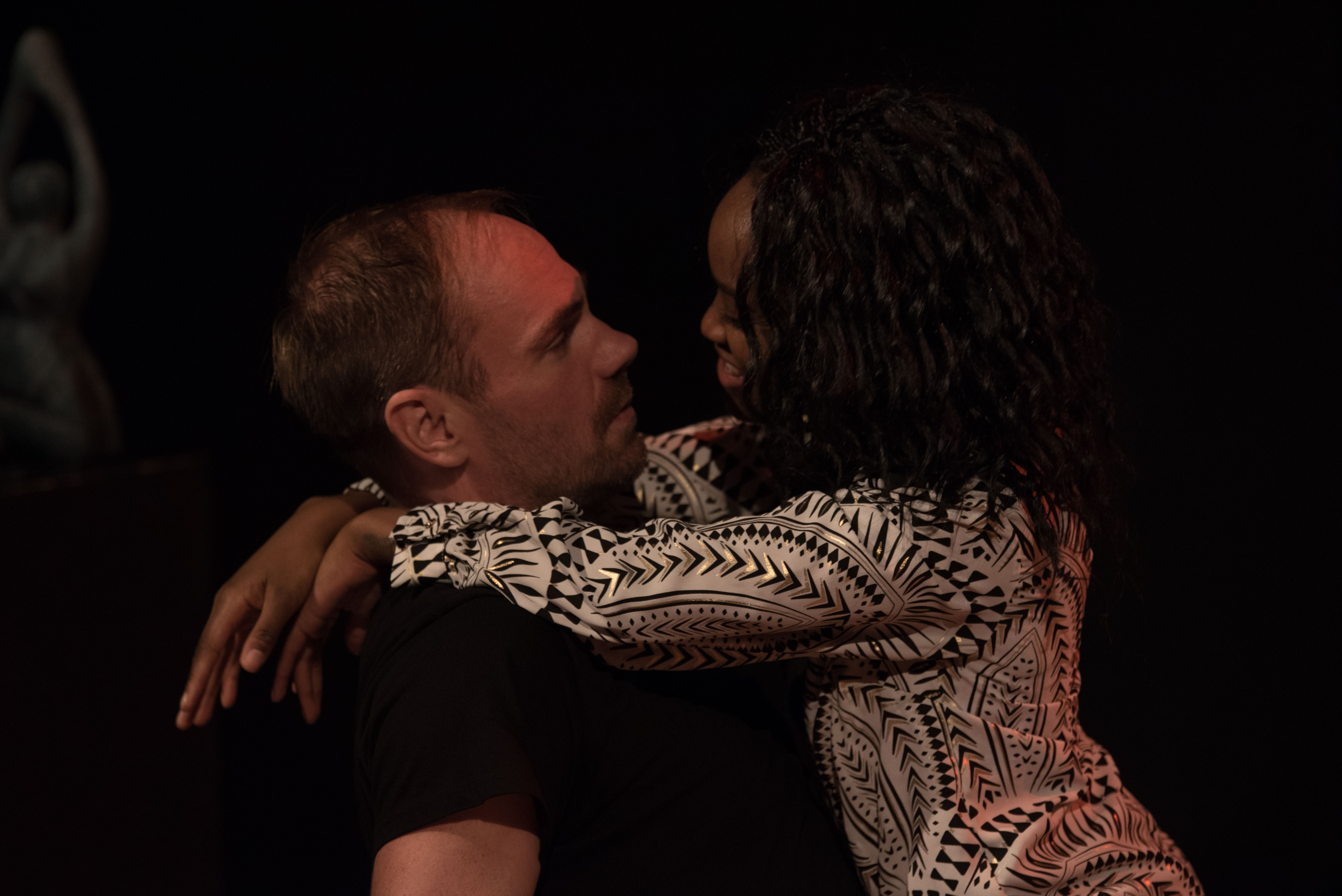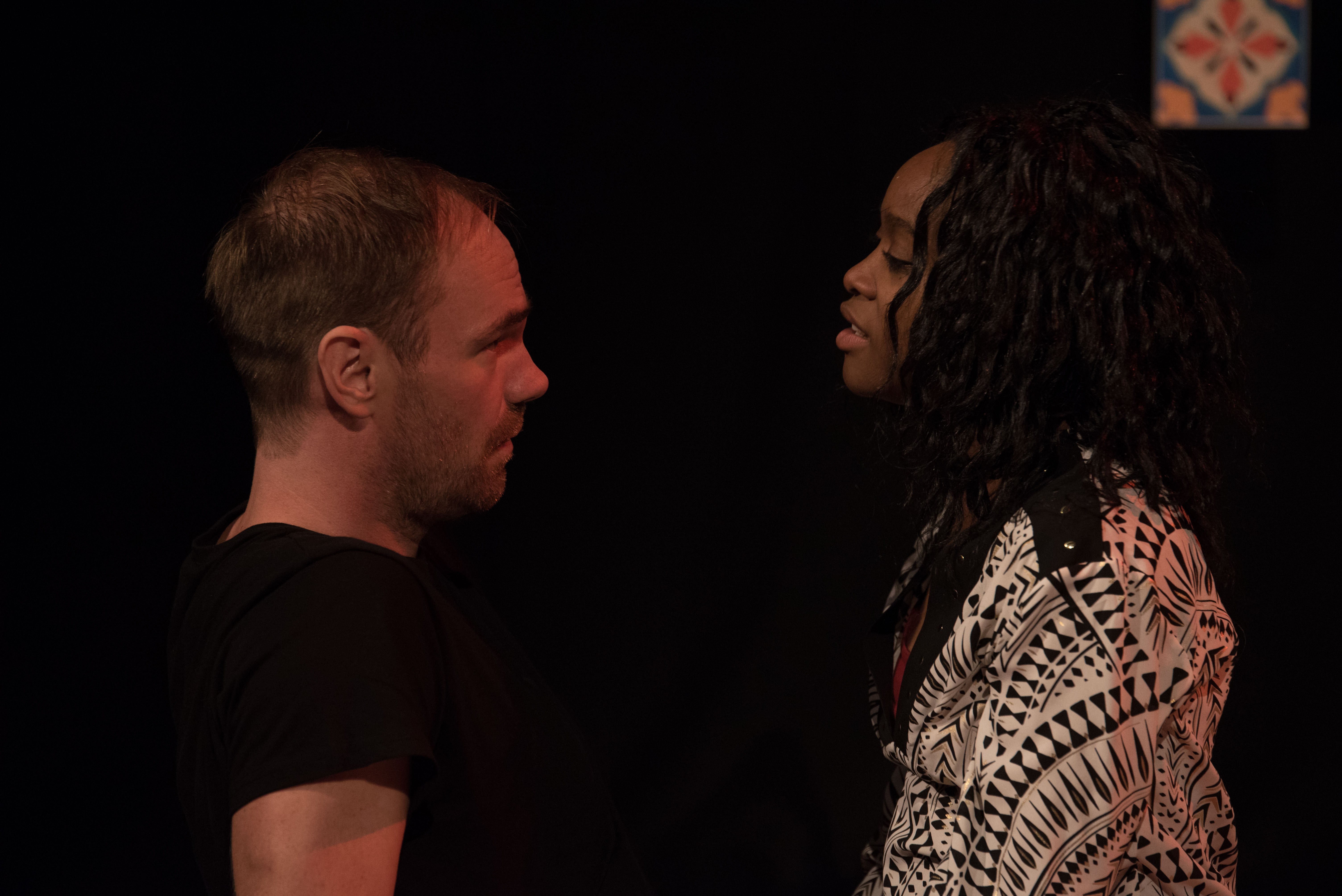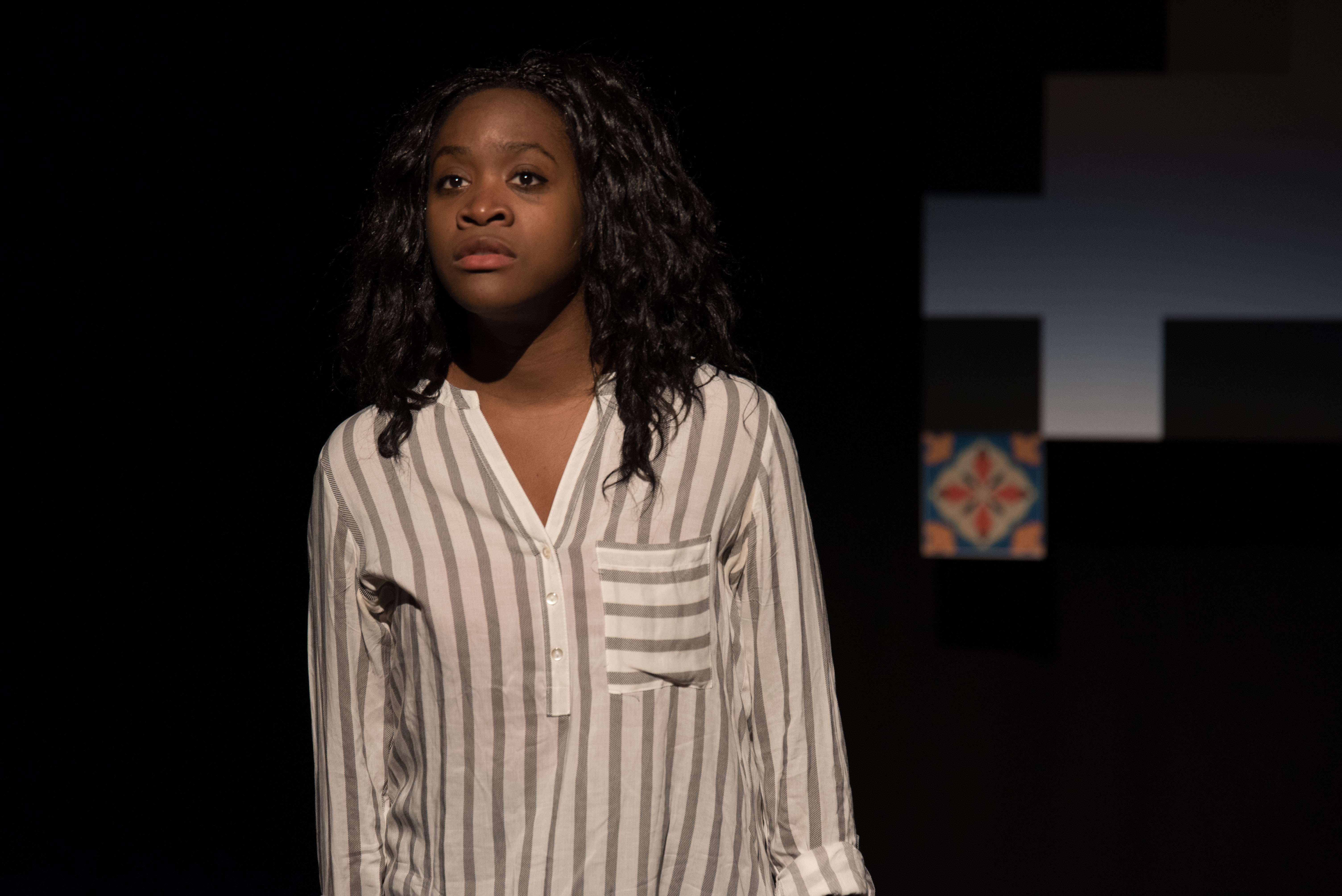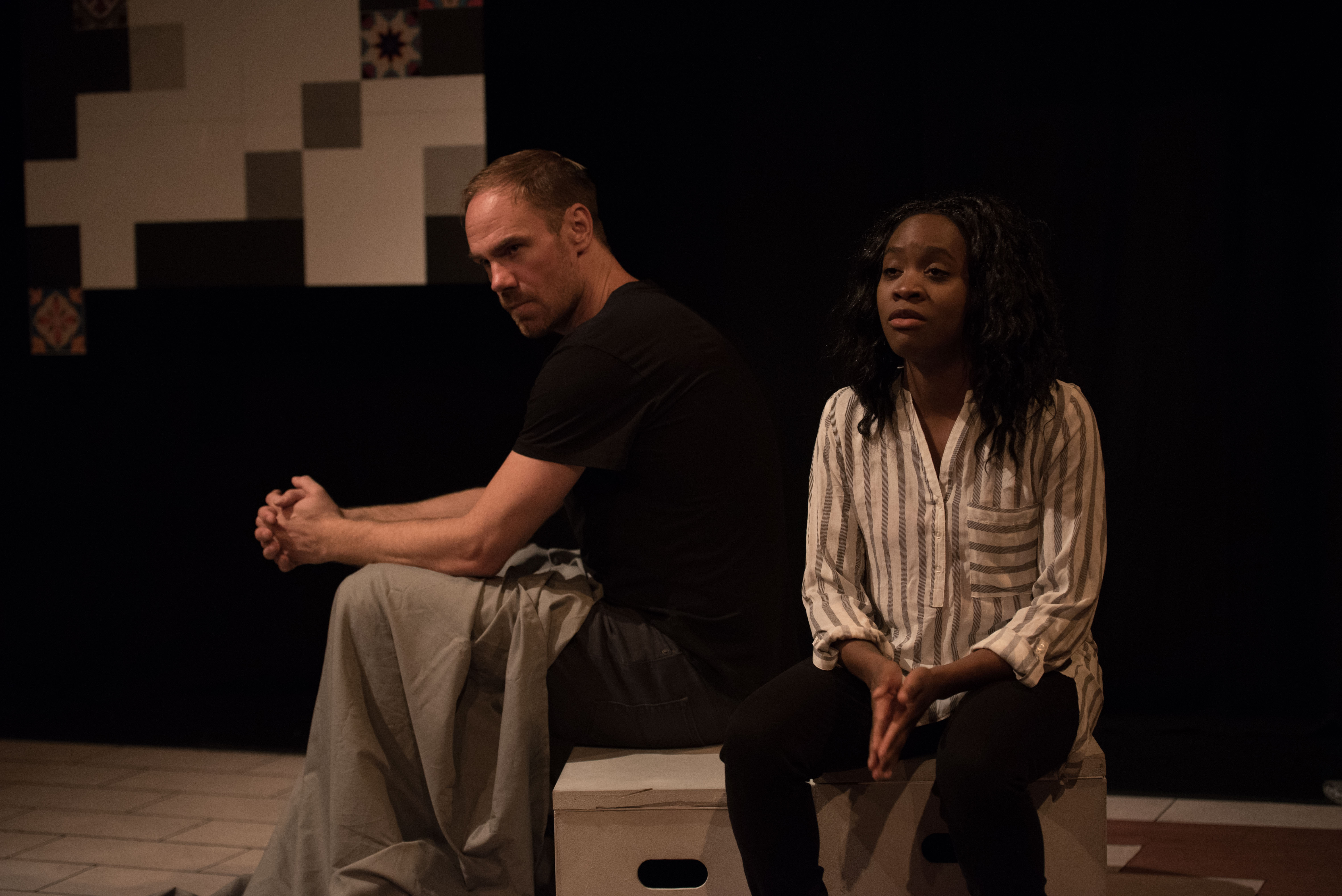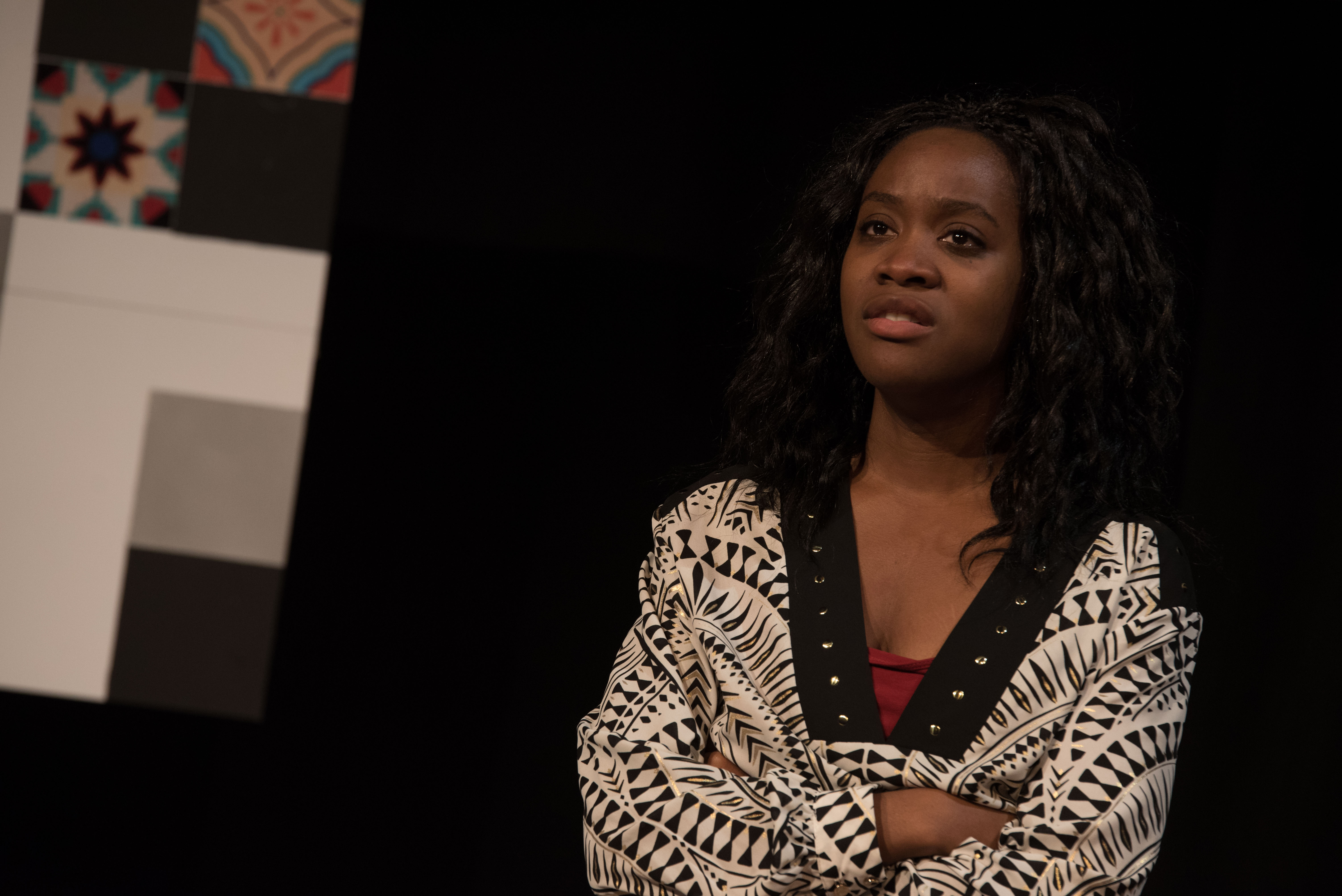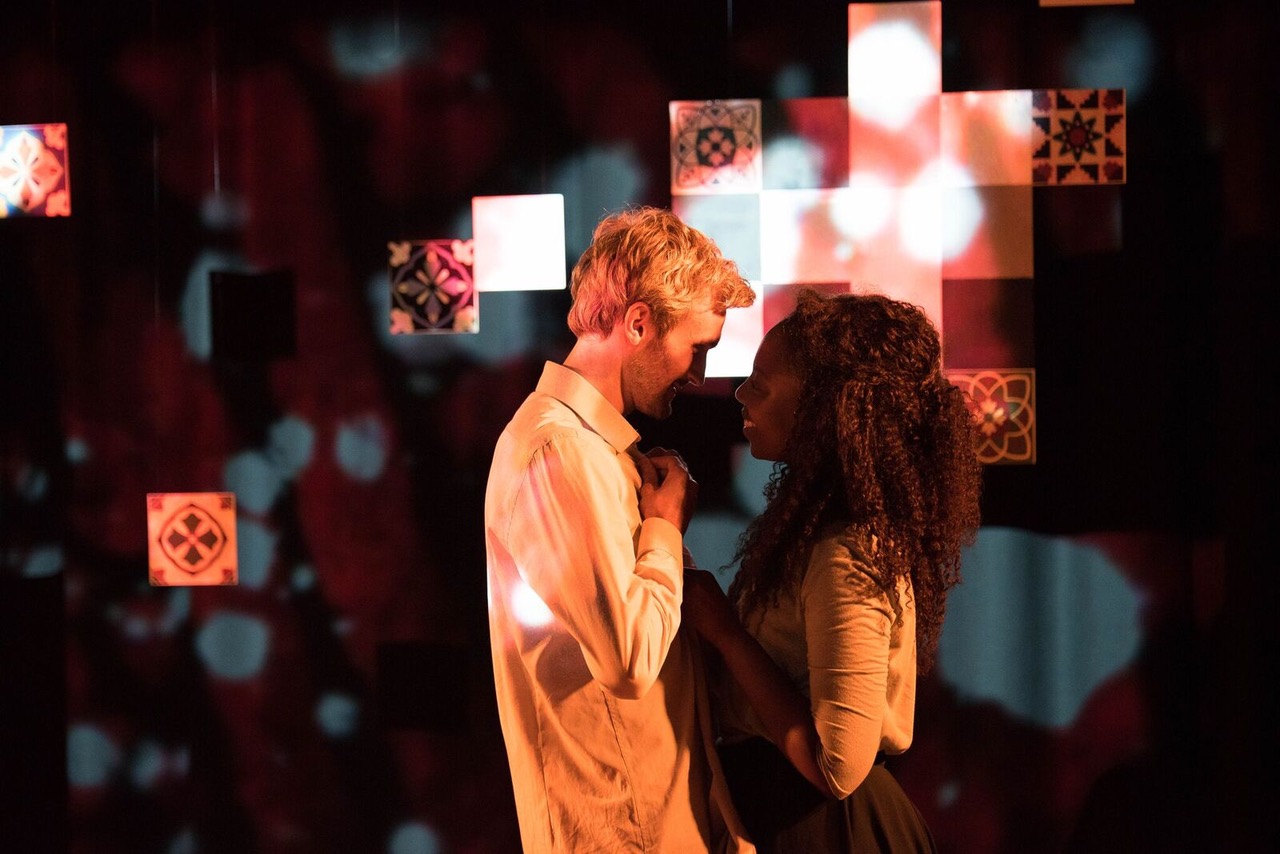Four years after Prime Minister Fredrik Reinfeldt urged Swedes to “open their hearts” to refugees seeking shelter, in September 2018 the far-right Sweden Democrats party made historic gains in the country’s general election. These advances were predicated on a campaign characterised by fierce anti-immigrant rhetoric and the exploitation of social tensions linked to the so-called European migrant crisis. This has been a concerning shift in political landscape for a country once lauded by liberals for its progressive social attitudes and policies.
The destabilising effect of contradictory social realities becomes particularly impactful when pitched against the blind optimism of new love.
The stress-testing of perceived social cohesion provides a timely premise for The Incident. Written by Swedish playwright Joakim Daun in 2017, The Incident is predominantly set in a small town in modern Sweden. The play examines the relationship of Jan, a white Swede (David Weiss), and Monica, a black Zimbabwean (Cassandra Hercules), following accusations that Monica has assaulted a pupil at the school where she teaches (the incident).
Through Monica’s eyes, we see how a steady build-up of micro-aggressions, mistrust and overt-hostility from the local community shape her sense of racial bias in their reaction to the incident. However, it is her frustration at Jan’s refusal to recognise these undertones that form the main crux of tension here. As a white Swede with idealistic notions of Sweden’s liberal identity, Jan is seemingly unable to empathise with Monica’s lived experience. He implicitly trusts the fairness of process and Swedish society, and is quick to dismiss overt racist abuse as the actions of a small unrepresentative minority.
It is undoubtedly refreshing to see an attempt to explore the stifling effect of post-racial liberal idealism on minority communities; especially in the context of an interracial relationship. This key theme is however undermined by a problematic plot. We soon learn that, as well as being her lover, Jan is Monica’s direct line manager, the head-teacher at the school in which ‘the incident’ occurs, and is responsible for the initial investigation into Monica’s actions. Given this inherent conflict of interest between Jan’s professional and personal obligations, Monica’s expectations of unquestioning support are tempered from the outset. There are simply too many variables at work for us to effectively scrutinise the motivations and assumptions behind his reactions.
After its somewhat lacklustre opening scenes (with lines and staging occasionally reminiscent of an early script rehearsal), the production itself improves significantly throughout its 80-minute one-act running time. The introduction of a parallel ‘origin story’ – in which flashback scenes from the couple’s early relationship are woven into the narrative – allows credible dramatic tension to really start to build. The destabilising effect of contradictory social realities becomes particularly impactful when pitched against the blind optimism of new love.
It is undoubtedly refreshing to see an attempt to explore the stifling effect of post-racial liberal idealism on minority communities
Cassandra Hercules’ performance as Monica grows in unison with the character’s development. As well as coping well with some of the script’s clunkier dialogue (“Why do I have to represent a whole race when I just want to represent me?”), she layers Monica’s gradual marginalisation – from wider society and within her relationship – with nuance and subtlety. In the final scenes, she capably carries the play to its passionate and poignant crescendo.























